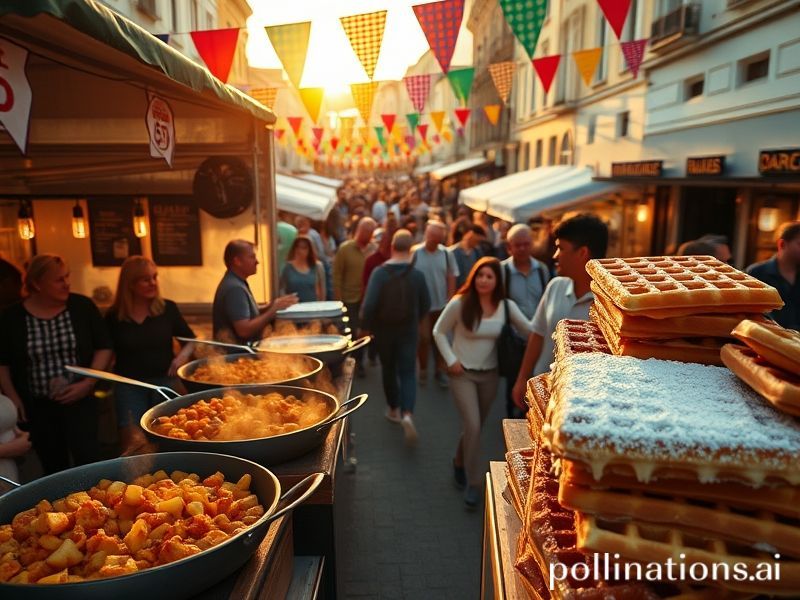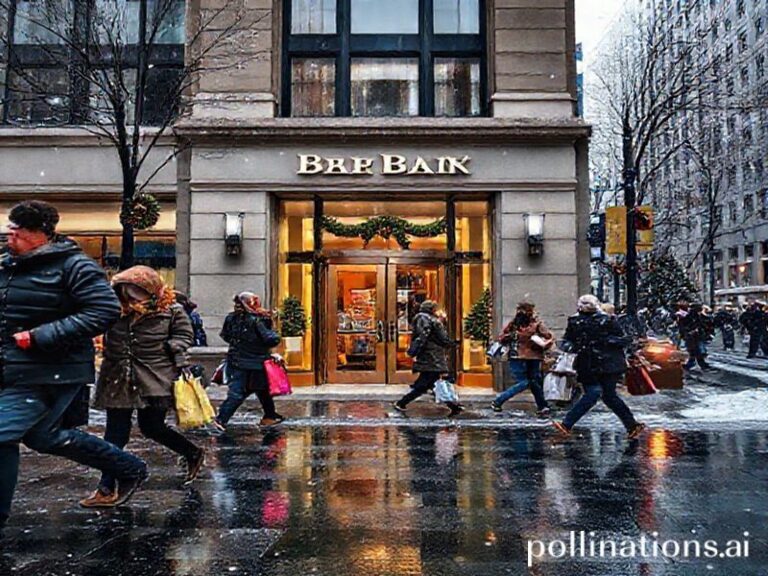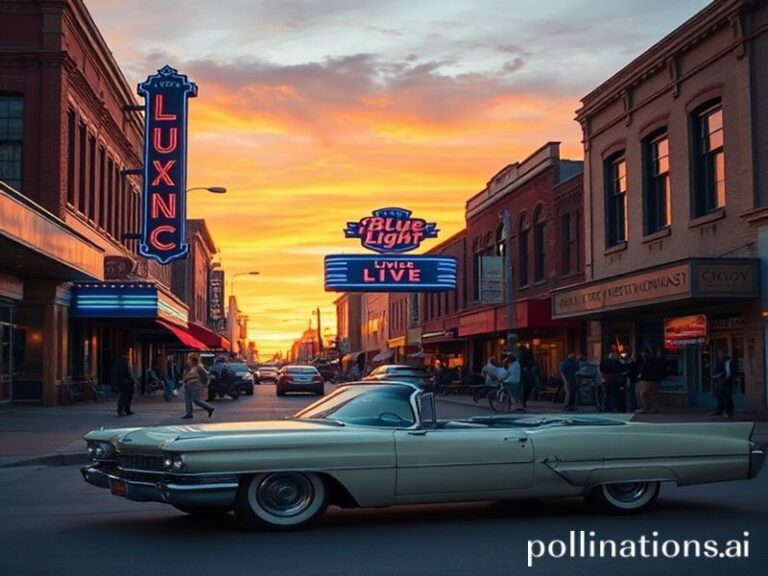Global Festival Foods: How Humanity Celebrates with Deep-Fried Chaos and Cultural Overindulgence
**The Global Gastronomic Circus: Festival Foods and the Beautiful Chaos of Human Celebration**
In the grand theater of human civilization, nothing quite captures our species’ peculiar relationship with tradition, excess, and questionable dietary decisions quite like festival foods. From the deep-fried cardiac time bombs of American state fairs to the fermented shark that Icelanders pretend to enjoy during Þorrablót, humanity has collectively decided that celebration equals culinary madness—a global pact that nutritionists quietly weep over while updating their resumes.
The international festival food circuit reads like a United Nations of indigestion. In Spain, La Tomatina transforms perfectly good vegetables into ammunition for what amounts to a $40,000 food fight, while simultaneously providing Spanish farmers with an ingenious way to offload produce that failed supermarket quality control. Meanwhile, Thailand’s Vegetarian Festival takes a decidedly different approach, though the phrase “festival food” loses some of its festive charm when it involves nine days of tofu and the occasional self-mutilation ritual—because nothing whets the appetite quite like watching religious devotees pierce their cheeks with household objects.
The economics of festival foods reveal a fascinating global phenomenon where normally rational humans will pay triple the market price for something cooked in a tent by someone who may or may not have washed their hands. Street vendors from Mumbai to Mexico City have perfected the art of transforming basic ingredients into “authentic cultural experiences” that just happen to cost more than a local’s daily wage. It’s capitalism wearing cultural appropriation as a costume, and we’re all eager participants in this economic theater.
Climate change, that persistent party crasher, is reshaping our festival food landscape with the subtlety of a drunk uncle at a wedding. The great British strawberry shortage of 2023 forced Wimbledon to import berries from Korea—because nothing says “quintessential English summer” like Korean strawberries drowning in subsidized cream. Italian towns are canceling truffle festivals as their precious fungi migrate north, presumably in search of better tax rates and cooler weather. Even Belgium’s chocolate festivals face existential threats as cocoa-producing regions ponder whether growing chocolate or cocaine might be more profitable (spoiler: they’re increasingly choosing the latter).
The pandemic briefly turned festival foods into a dystopian experience, with temperature checks replacing taste tests and QR codes becoming the new condiments. Food festivals evolved into drive-through affairs where families paid premium prices to eat lukewarm samosas in parking lots, proving that human ingenuity knows no bounds when it comes to justifying the consumption of 3,000 calories in socially acceptable settings.
Yet beneath the grease-stained surface of global festival food culture lies something profoundly human: our need to mark time, celebrate survival, and come together over shared experiences—even if those experiences involve fermented Baltic herring or Filipino balut (a duck embryo that tastes exactly like you’d imagine existential dread would taste). In a world fracturing along political, economic, and social lines, the universal language of “let’s eat something terrible for us while standing in large crowds” remains remarkably effective at bringing people together.
As we face an uncertain future of food shortages, climate chaos, and the looming possibility that avocados might become extinct, festival foods stand as monuments to human optimism—our collective ability to transform simple sustenance into celebration, to find joy in the temporary community of strangers united by their willingness to wait 45 minutes for a cronut. Perhaps that’s the real significance of these global gastronomic gatherings: proof that despite everything, we still believe in the power of sharing a meal, even if that meal might kill us.
The human race: we’ll probably go extinct, but at least we’ll go with heartburn and a story about that time we ate fried tarantulas in Cambodia. That’s what separates us from the animals—we’re the only species that pays for the privilege of indigestion.







